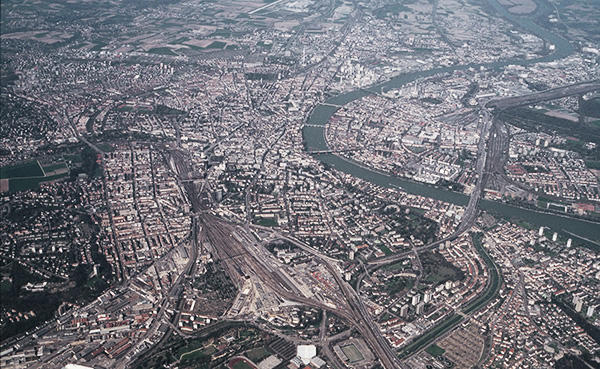The City + Energy II

An architectural design studio investigating the transformation
of urban typologies in Basel
Based on the premises of a research studio conducted during the fall semester 2012 which investigated the relationship between the city and energy, this design studio tested through architectural interventions possible strategies for the transformation of three relevant urban typologies in the city of Basel.
As recent discussion on the relationship between energy and the city is largely focusing on both technical innovations for energy saving and on the spatial implications of the shift from fossil fuels to renewable sources of energy, we proposed an alternative approach, one that is based on the possibility of imagining a city that through its architecture is able to question the city’s energetic dependence as a whole.
Focusing on the relationship between urban form and energy was the prerequisite for architectural interventions that are more fundamentally challenging the current society energy addiction by reformulating spatial configurations based on the possible transformation of existing urban typologies, on the increase of densities of inhabitants and users, on a diversified functional distribution and on a more efficient relationship between built fabric and the way we move through the city.
Building on the results of extensive research conducted during the fall semester 2012 at Studio Basel and centered on the city of Basel, in this semester students were dwelling into a fully architectural design studio. They were asked to advance architectural proposals for three relevant sites of the city that are representative of three dominant urban typologies, consisting of the dense historic compact city, the modernist interventions of the 60s and the contemporary urban sprawl.
These architectural interventions are meant to be exemplary and thus seeds for the definition of a larger vision of the city - the metropolitan region of Basel - that aims at devising the form of a city able to limit its energy consumption.

